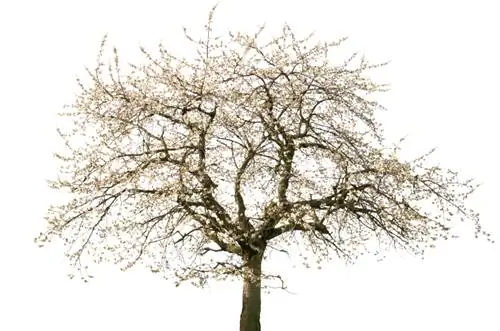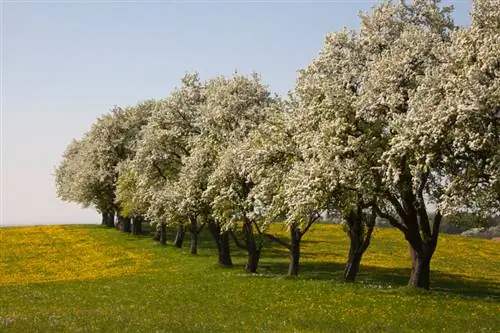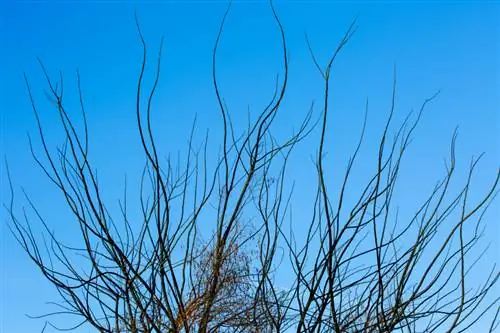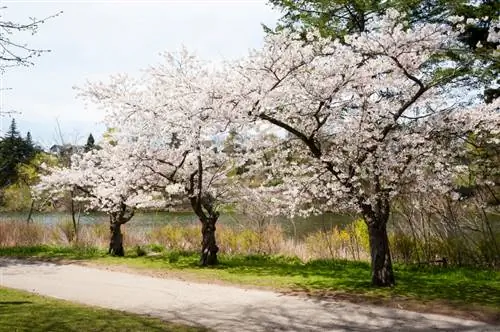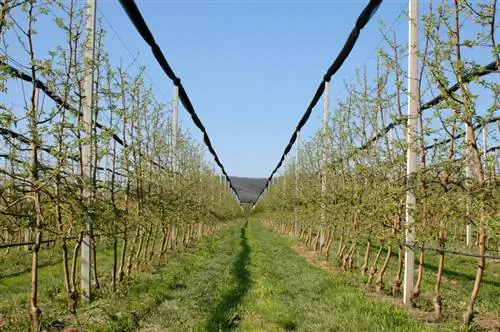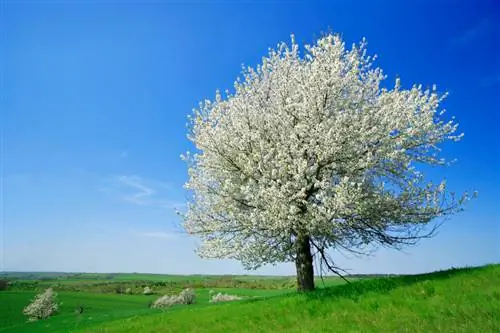- Author admin [email protected].
- Public 2023-12-16 16:46.
- Last modified 2025-01-23 11:19.
Large cherry trees live longer, but also take longer to reach full yield. Smaller trees soon produce full yields and have many advantages when it comes to care, but they don't get as old.
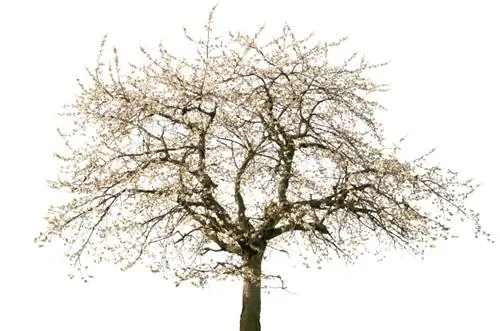
How big do cherry trees get?
The size of cherry trees varies depending on the species: standard trunks reach 7-20 m, semi-trunks a similar height with a lower crown base, bushes grow 3-4 m high and shrubby, and columnar trees remain under 3 m and are suitable for small ones Gardens or terraces.
Big cherry trees
High Tribes
Tall trunks have a minimum trunk height of approx. 180 cm. The sweet cherry trees can grow up to 20 m high and the sour cherry trees up to 7-8 m high. The strong-growing rootstocks on which the standard trunks are grafted are responsible for the growth.
Half-trunks
Half-trunks are not half as tall as the standard trunks. They have a trunk height of at least 120 cm. When fully grown, the half-trunks reach a height similar to that of the standard trunks. The difference to the standard stem is that the crown base is lower. The rootstocks of the half-trunks are medium to weak-growing.
Small cherry trees
bushes
The bush trees have a trunk height of around 60 cm up to the base of the crown. They grow less upright, more shrubby, can be easily trained into spindles and reach a height of around 3-4 m. The bushes are grafted onto weakly growing rootstocks and do not take up so much space in width.
Columnar Trees
The columnar cherry trees are particularly suitable for small gardens or terrace planting. These trees rarely exceed a height of 3 m. The pedestal tables are usually refined onto the GiSelA rootstocks, which are characterized by particularly weak growth.
Tips & Tricks
Very large and old sweet cherry trees have such a sprawling crown that it is not possible to completely protect them from birds with netting. You should therefore leave part of the harvest to our feathered friends. A sweet cherry tree in full yield produces so much fruit that it is enough for humans and animals.

